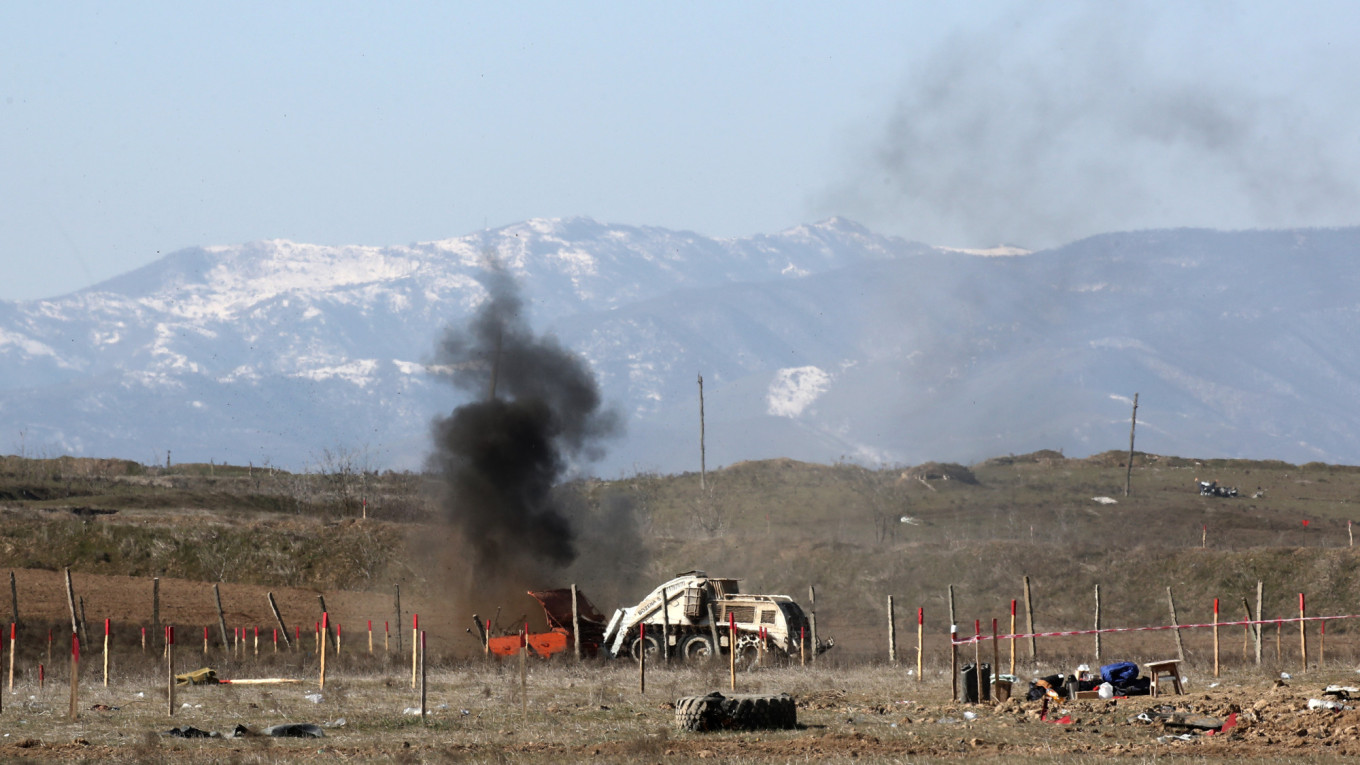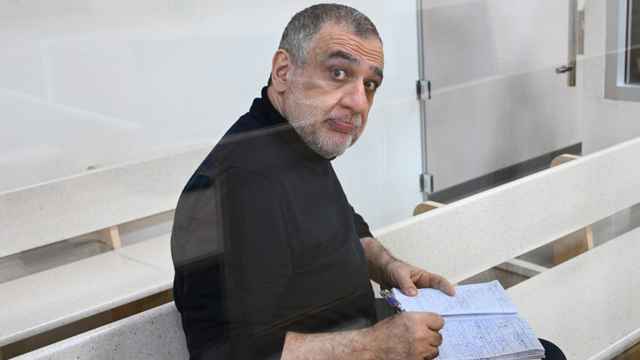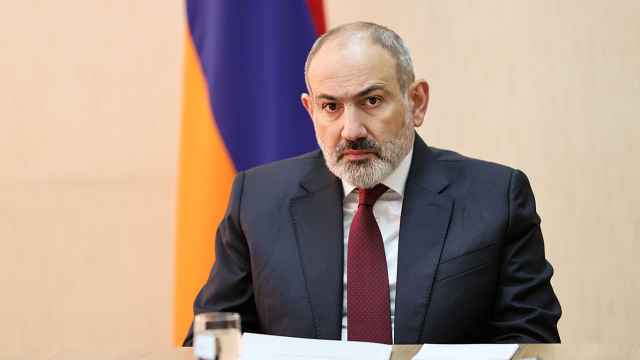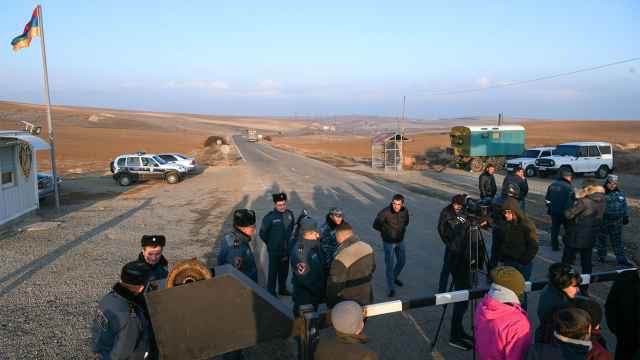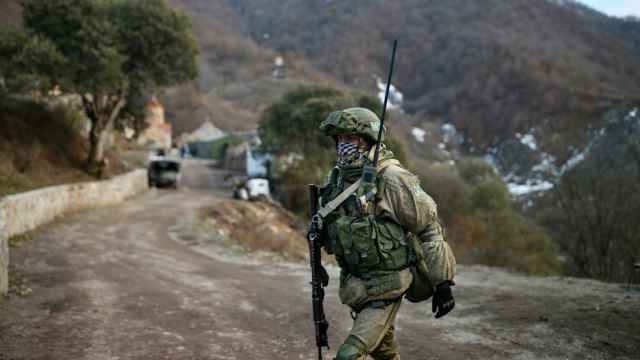Updated at 12:00 p.m. on Sept. 13 to add Russia's ceasefire announcement.
Russia said Tuesday it had negotiated a ceasefire between ex-Soviet Armenia and Azerbaijan, after fresh border clashes between the historic rivals left dozens dead.
Armenia and Azerbaijan traded blame for exchanges of fire around the contested Nagorno-Karabakh region that began at about midnight local time and which Armenian Prime Minister Nikol Pashinyan said killed at least 49 people.
Yerevan later accused Baku of "trying to advance" inside Armenian territory and said it was seeking military assistance from Moscow.
"We expect that an agreement reached as a result of Russian mediation on a ceasefire from 9:00 a.m. Moscow time (06:00 GMT) on Sept. 13 this year will be carried out in full," the Foreign Ministry in Moscow said in a statement, adding that it was "extremely concerned" by the uptick in fighting.
The Kremlin hailed Moscow's work in quickly securing the ceasefire.
“It is difficult to overestimate the role of the Russian Federation and [President Vladimir] Putin personally. Obviously, the president is making every effort to help de-escalate tensions on the border,” Kremlin spokesman Dmitry Peskov told reporters on Tuesday.
Armenian Defense Minister Suren Papikyan and Russian counterpart Sergei Shoigu had earlier spoken by phone and agreed on "joint steps to stabilize the situation," the defense ministry in Yerevan said.
Armenia’s security council, led by the Caucasus republic’s prime minister and president, gathered to invoke a mutual assistance and cooperation treaty with Russia, which spells out joint defense and military assistance in case of aggression toward signatories, the Armenian government said in a statement.
The statement added that Armenia will also turn to the Moscow-led security bloc of six former Soviet republics, the Collective Security Treaty Organization (CSTO), as well as the UN Security Council for assistance.
The CSTO's permanent council held an emergency meeting to discuss the border flare-up later Tuesday.
Pashinyan held phone calls with Russian President Vladimir Putin, as well as French President Emmanuel Macron and U.S. State Secretary Antony Blinken.
The flare-up between regional foes Armenia and Azerbaijan is the latest in a series of reported shootouts along their shared border since the end of the 2020 war between Yerevan and Baku over the disputed region of Nagorno-Karabakh.
Armenian officials have linked clashes to Russia’s invasion of Ukraine and pro-government Azeri media seeking to discredit the 2,000-member Russian peacekeeping contingent in Nagorno-Karabakh.
The Ukraine war has fueled rumors that Russia was withdrawing at least part of its peacekeepers into Ukraine and contributed to an escalation of hostilities in Nagorno-Karabakh, where ceasefire violations are common.
Last week, Armenia accused Azerbaijan of killing one of its soldiers in a border shootout. In August, Azerbaijan said it had lost a soldier and the Karabakh army said two of its troops had been killed and more than a dozen injured.
The neighbors fought two wars — in the 1990s and in 2020 — over the Nagorno-Karabakh region, Azerbaijan's Armenian-populated enclave.
Six weeks of fighting in the fall of 2020 claimed more than 6,500 lives and ended with a Russian-brokered ceasefire.
Under the deal, Armenia ceded swathes of territory it had controlled for decades and Moscow deployed about 2,000 Russian peacekeepers to oversee the fragile truce.
During EU-mediated talks in Brussels in May and April, Azerbaijani President Ilham Aliyev and Armenian Prime Minister Nikol Pashinyan agreed to "advance discussions" on a future peace treaty.
Ethnic Armenian separatists in Nagorno-Karabakh broke away from Azerbaijan when the Soviet Union collapsed in 1991. The ensuing conflict claimed around 30,000 lives.
AFP contributed reporting.
A Message from The Moscow Times:
Dear readers,
We are facing unprecedented challenges. Russia's Prosecutor General's Office has designated The Moscow Times as an "undesirable" organization, criminalizing our work and putting our staff at risk of prosecution. This follows our earlier unjust labeling as a "foreign agent."
These actions are direct attempts to silence independent journalism in Russia. The authorities claim our work "discredits the decisions of the Russian leadership." We see things differently: we strive to provide accurate, unbiased reporting on Russia.
We, the journalists of The Moscow Times, refuse to be silenced. But to continue our work, we need your help.
Your support, no matter how small, makes a world of difference. If you can, please support us monthly starting from just $2. It's quick to set up, and every contribution makes a significant impact.
By supporting The Moscow Times, you're defending open, independent journalism in the face of repression. Thank you for standing with us.
Remind me later.


